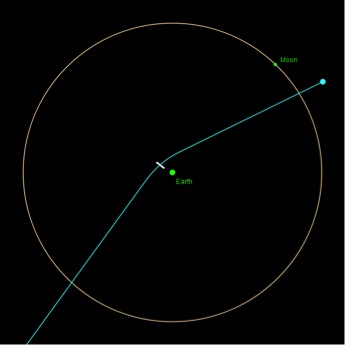
My first blog about NASA turning to commercial providers for launch vehicles seems to have opened an interesting debate. Why do we spend any money on human exploration of space? Now and always, every tax dollar we collect and spend should be measured by the benefit we gain from that expenditure. I do not claim that every dollar we spend on human spaceflight is well spent. Far from it. I have often been critical of how money is spent in space research. Yet space research is essential and humans in space are an essential part of it.
Space exploration has created products and services that are essential to contemporary human endeavor. Weather forecasts and information about the long range impacts of climate change come primarily from space. Global telecommunications including phones, television and the Internet depend greatly on space activities. GPS systems are already essential for military and air craft operations and it is becoming essential for automobiles that may soon self-drive with data from space. The power grids that serve people around the globe also depend on solar flare activities reported from space. Solar flare activity can and has destroyed satellites as well as brought down regional power grids due to power surges during these electromagnetic storms! I don't have a crystal ball and cannot predict with certainty the innovations of tomorrow that will derive from space research funded activities. But I have do have high confidence those innovations will result in new technologies that will be critical to our everyday lives.
However most of our current and future space exploration is and will be performed by robotic devices. Robots are far lighter, cheaper and expendable. So whenever possible, robots can and should be used! Humans need complex and heavy life support systems, so many might ask, why even consider the prospect of sending humans to space as robotics and computers continue to rapidly advance?
The answer is important. We are still very far from a robotic agent being able to have anything close to the perception and judgment of a human explorer. And that is a very critical distinction. To demonstrate this I can cite historical facts as well as personal experience.
A great example of this important difference came when Jack Schmidt became the first geologist to walk on the moon. Knowledge of the moon's geology including how and when it formed gives us important data about when and how the Earth finally cooled down and developed its rocky crust. This in turn gives us deeper understanding of tectonic plate movement which is the cause of earthquakes around the globe. Clearly predicting and protecting against earthquakes is essential science for those who live in Japan, California or other earthquake prone areas!
Before Jack Schmidt walked on the moon, the probes and test pilots who preceded him, had done their best to find valuable samples, but only Jack's deep geological understanding and direct human perception allowed him to quickly find rocks on the moon that turned out to be from the primordial crust formed when the moon first solidified from a molten state. This find allowed lunar formation science and thus Earth formation science to advance greatly.
More recently, both repairing and extending the life of the Hubble Space Telescope, one of the most successful scientific instruments ever, could only be done by highly trained human astronauts. To date more than 9,000 peer reviewed scientific papers have been published referencing the HST data which is 15 times more than any ground based telescope. Not only does high quality astronomy tell us about the Earth and humanity's ultimate fate, but more immediately, studying the life cycles of stars and planets informs us deeply about what to expect right here on Earth in the near future.
The International Space Station is poised to become a great national laboratory. While I believe it deserves a critical cost benefit analysis (which I may outline in a future blog), I also have direct experience with the great work being done there which only human agents could accomplish. Humans in the loop, real time, with their perception and judgment, can do far more "experimentation" than an automatic platform. Believe me, as someone who is investing in commercial experiments in space, I want very much to utilize the least expensive processes. When this can be done without human intervention, the costs go down greatly, but sometimes, you really need a human operator.
Importantly, I think that all human spaceflight can and will come down in cost by a factor of 10 to 100 in the next decades. This will come largely through reusability and manufacturing standards. These cost savings will make the case for profitable human space exploration that much easier and sooner than you might think!
My good friend Stephen Hawking has noted that for humanity to insure its survival, we must become a multi-planet species. On April 13th 2029, a 350-meter diameter asteroid will pass very close to the Earth (see the above diagram). It really is only a matter of time before a "big one" hits us. But we are looking at thousands of years into the future. Gamma ray bursts from distant dying stars may also periodically create extinction level events on planets such as ours. This further justifies both research and exploration. Eventually, a great many years from now, the Earth will be destroyed. The sun will ultimately engulf the Earth as it burns the last of its hydrogen fuel.
The issue is not if we should explore and homestead in space but when. There is no time like the present, let's get started!
?
Follow Richard Garriott de Cayeux on Twitter: www.twitter.com/RichardGarriott
Source: http://www.huffingtonpost.com/richard-garriott-de-cayeux/human-space-travel_b_1358648.html
luol deng culkin wooly mammoth no child left behind no child left behind neurofibromatosis steve jobs fbi file
No comments:
Post a Comment
Note: Only a member of this blog may post a comment.